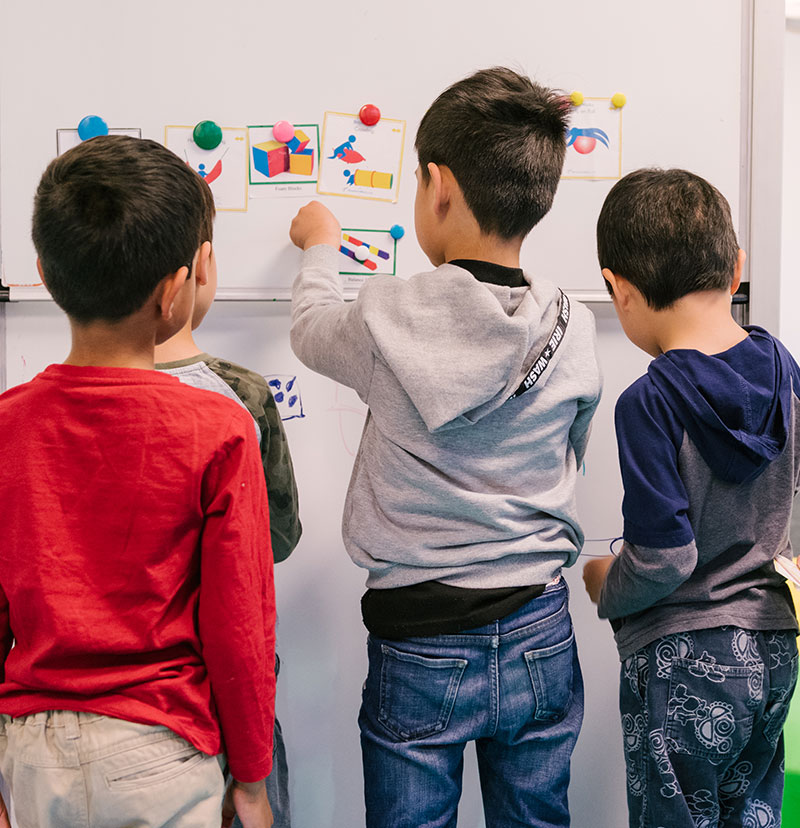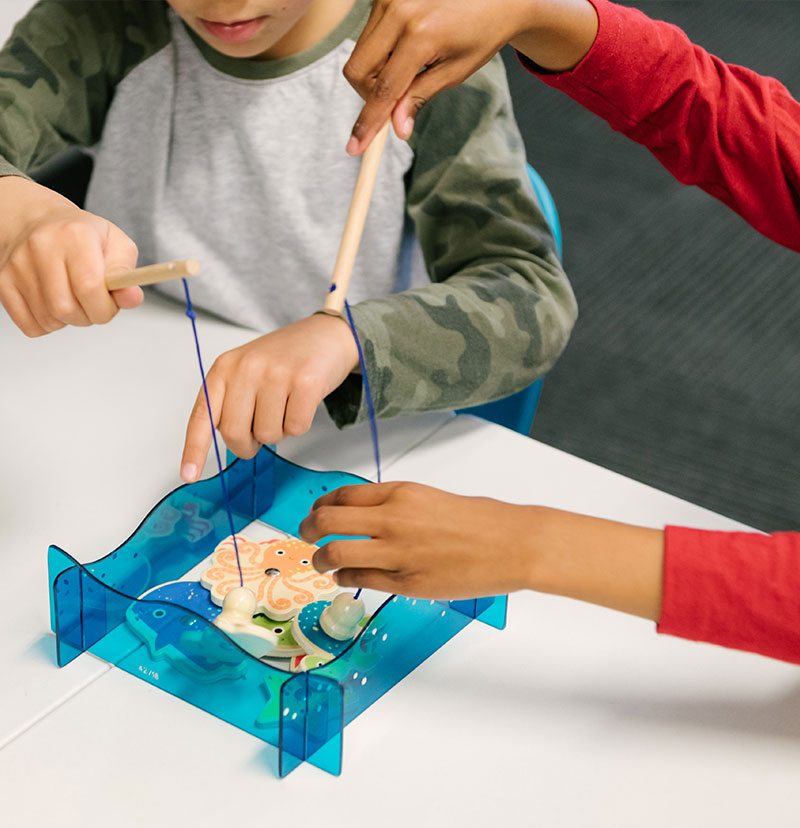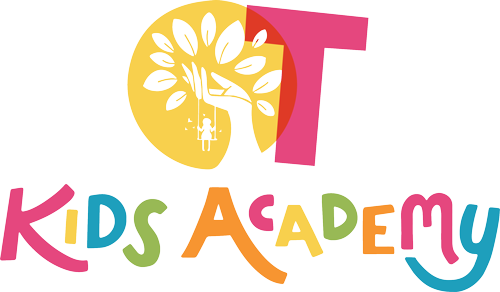When to seek help
Whilst no two children are the same and they all develop at different rates, there is a typical range and pattern for this development. Some of the common challenges your child may be having are:
Having trouble with their fine motor skills
- Difficulty establishing correct pencil grip
Challenges using cutlery, scissors or in – hand tools Struggles with buttons, zips or fastening Manipulating toys & puzzles Avoids fine motor play or tabletop work
Having trouble with their gross motor skills
Poor coordina tion of arm or leg movements May fall over / trip more often than peers Struggles to maintain upright sitting posture at table Fatigues easily Bumps into things or people often Not developing a dominant hand side Avoids PE type games / ball games / hopping / star jumps May fear swings or slide
Difficulty with oral motor skills or eating
Avoiding or refusing certain foods/ textures Excessive drool ‘Messy’ eating Overstuffs mouth / food left in the mouth Slow or inefficient chewing Food falling from the mouth
Challenges with sensory processing and making sense of the information received through their senses
Over responsive or heightened reaction to sound, movement , touch or taste Under responsive to certain sensations, often misses information or doesn’t notice, can have a high pain tolerance or poor sense of danger , doesn’t notice cuts/bruises Seeks out sensations. Constantly moving, jumping, touching, crashing or bumping Easily distracted by visual or auditory stimuli Difficulty with interoceptive senses – struggles to toilet train, doesn’t notice when too hot/too cold Struggles to regulate emotions through various sensation experiences
Difficulty with social interactions
Talking playing looking and engaging with othe r people Able to listen, and respond appropriately to others Being flexible, a team player Able to problem solve or move on
Having trouble playing with others
Not developing beyond parallel play Doesn’t initiate play, or struggle s to expand play ideas Repetitive in play, inflexible Avoids sharing toys, struggles with turn taking
Having trouble recognising their emotions
Emotionally reactive – show their feelings in behaviour Difficulty coping with change Inability to calm self when upset Often results in challenging behaviours Difficulty using language to describe emotions or problems Poor resilience or problem solving skills
Learning challenges
- Unable to concentrate or easily distracted
- Difficulty following instructions
- Tires easily
- Not keeping up with schoolwork or difficulty learning new tasks
- Makes letter or number reversals
- Tries to avoid handwriting / homework
Having trouble processing visual information
Problems recognising letters and numbers Difficulty with spacing and sizing of letters , and writing on the lines Difficulty copying shapes , letters and numbers Difficulty finding objects Missing words often when reading Slow with reading compared to peers Slow with copying from the white board
Challenges with early development or toileting, delays meeting early motor milestones
Not meeting early motor milestones within typical age range Fussy or reactive to sensations Fearful or avoidant of typical pl ay Has trouble eating, sleeping or using the toilet
Learn more about developmental milestones


We would love to meet you
Contact us to schedule a consultation or learn more about our services.
(02) 8040 0876
Visit us
Ground Floor
18-20 Orion Road
Lane Cove, Sydney, NSW 2066
